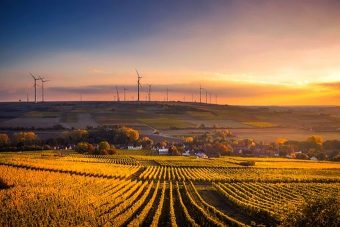
The march towards 100 per cent renewable electricity among global corporates continues apace, with the RE100 campaign today reporting significant increases in the proportion of clean energy sourced by its members in 2016-17.
The non-profit initiative, which calls on businesses to commit to sourcing 100 per cent of their electricity from renewables, said its members were now “reshaping the energy market through their global investment decisions and accelerating a zero emissions economy”.
RE100’s annual report shows the proportion of renewable electricity sourced via corporate power purchase agreement (PPAs) – through which companies buy electricity directly from producers at a pre-agreed price – among its global membership grew fourfold in 2016-17.
The quantity of electricity sourced by member companies from onsite generation also increased fifteen-fold through supplied-owned projects and nine-fold through member-owned projects over the course of the year, according to RE100.
An overwhelming 88 per cent of members responding to the report cited the compelling economic case for renewable electricity as the main driver for upping their ambition, with 30 out of 74 reporting that renewables were already either cost competitive or delivering significant savings on their energy bills.
The highest proportion of renewables sourced in 2016 was in the European market, which made up 61 per cent of total renewable energy consumption among RE100 members, with green electricity contracts with suppliers the preferred option among these companies.
Three companies in Europe also achieved their RE100 target in 2016 – Elopak Inc, Marks & Spencer and Sky plc – adding to a list that already included Crédit Agricole and Commerzbank, which both continued to source 100 per cent of their power from renewables last year in France and Germany respectively.
Yet the report shows that PPAs made up just four per cent of European RE100 members’ renewable energy consumption in 2016-17, representing a “missed opportunity for investment in Europe’s energy infrastructure”, according to the report.
Sam Kimmins, head of RE100 at The Climate Group, said policy barriers remained a significant challenge for members in Europe.
“The EU has the potential to unlock the carbon and competitive benefits of PPAs – in a similar way to markets such as the UK, Netherlands and Ireland – all of which are seeing high levels of investment,” he said in a statement. “We urge members of the European Council to ensure there is a supportive policy framework across the whole of the union to enable this investment potential while ensuring the goals of the Paris Agreement are met.”
Meanwhile, several new members have also joined the RE100 initiative. Announced today, French food giant Danone SA is targeting 50 per cent renewable electricity by 2020, rising to 100 per cent by 2030, while UK consumer goods giant Reckitt Benckiser Group plc – which owns brands such as Durex, Air Wisk and Dettol – is also aiming to be fully powered by renewables by 2030.
In total, it means the initiative now brings together 122 global companies with a collective revenue of over $2.75tr, together representing over 159TWh of demand for renewable electricity, RE100 said.
Source: businessgreen.com

